Spice Up Your Fries: A Global Spice Traditions Journey Through South American Flavors
If you thought French fries were the only way to go, think again! Welcome to the vibrant and fiery world of South American fries, where every bite is a flavor-packed journey through Global Spice Traditions. Whether you’re a professional chef or a fry fanatic at home, this guide will give you the lowdown on how to transform your humble potato into a culinary masterpiece using authentic South American spices.
Table of Contents
- Introduction
- Regional Fry Varieties Across South America
- The Spices That Make Them Pop
- Pro Tips for Perfecting Your South American-Style Fries
- Recipe Roundup: Three Must-Try South American Fry Styles
- Conclusion
A Taste of the South
When we think about South American cuisine, images of grilled meats, bold sauces, and colorful stews come to mind. But tucked away in street corners from Peru to Argentina are some of the most exciting versions of fried potatoes you’ll ever taste — spiced up with regional flair that tells the story of each country’s history, culture, and palate preferences.
Regional Fry Varieties Across South America
Let’s take a tour across the continent and see what each region brings to the frying pan:
| Country | Dish Name | Key Features | Signature Spices |
|---|---|---|---|
| Peru | Papa a la Huancaína | Boiled potatoes served cold with a spicy cheese sauce | Aji amarillo, garlic, cheese, saltine crackers |
| Colombia | Papas Criollas | Small yellow potatoes fried and often served with hogao (tomato-onion sauce) | Annatto, cumin, garlic, hogao base |
| Brazil | Polenta Frita | Fried polenta sticks with a crispy crust and creamy center | Parmesan cheese, black pepper, smoked paprika |
| Chile | Choclo con Queso | Boiled corn on the cob topped with melted cheese | Ground coriander, oregano, chili flakes |
| Argentina | Papas Fritas con Chimichurri | Crispy fries tossed in fresh parsley-based chimichurri sauce | Parsley, oregano, garlic, red wine vinegar |
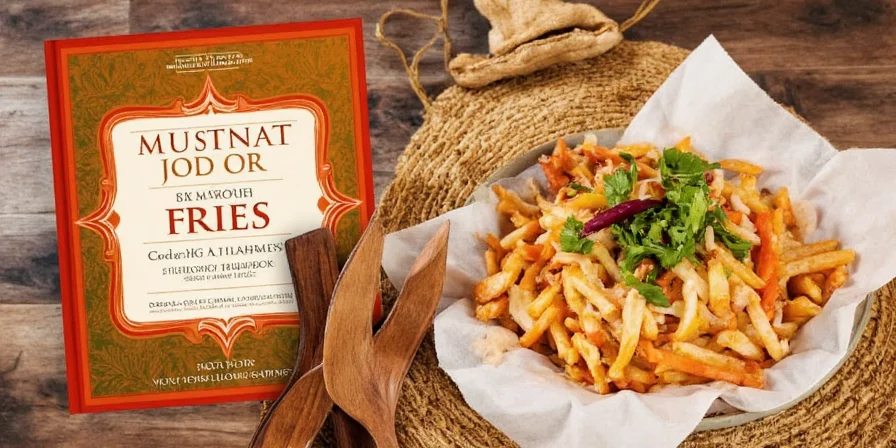
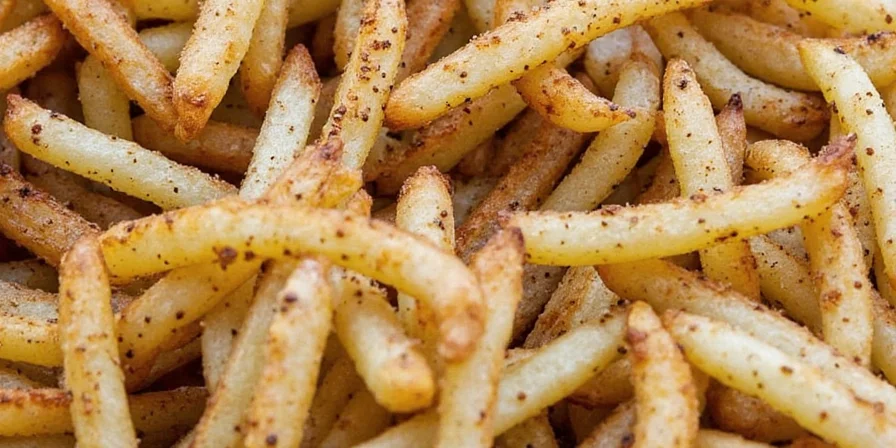
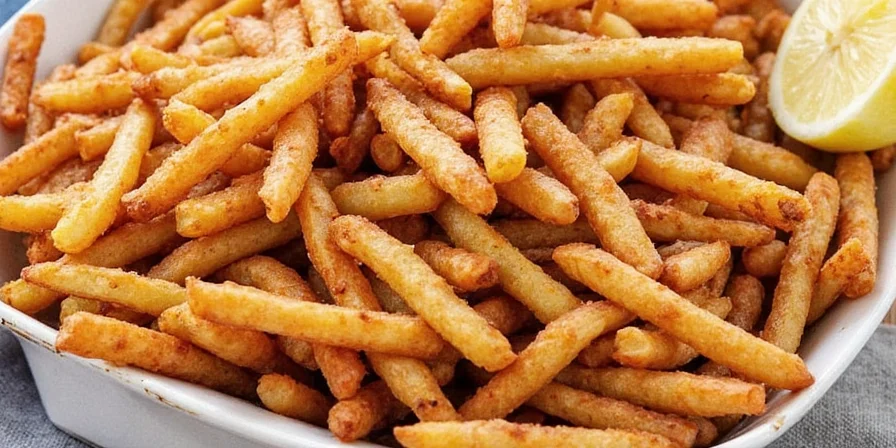
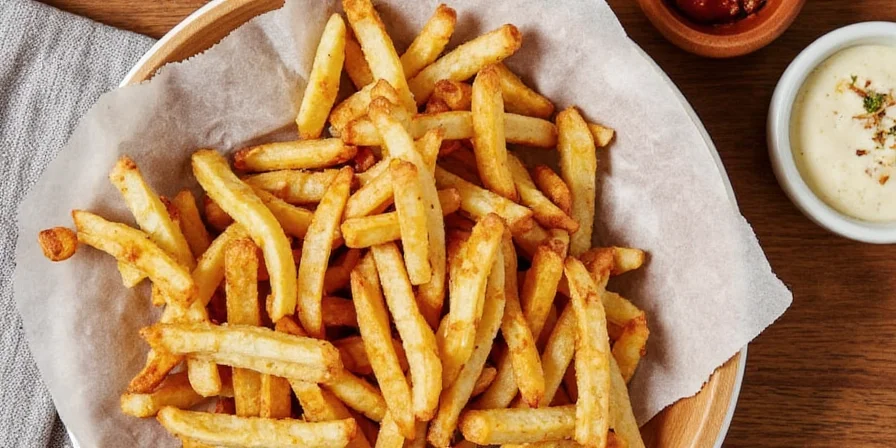
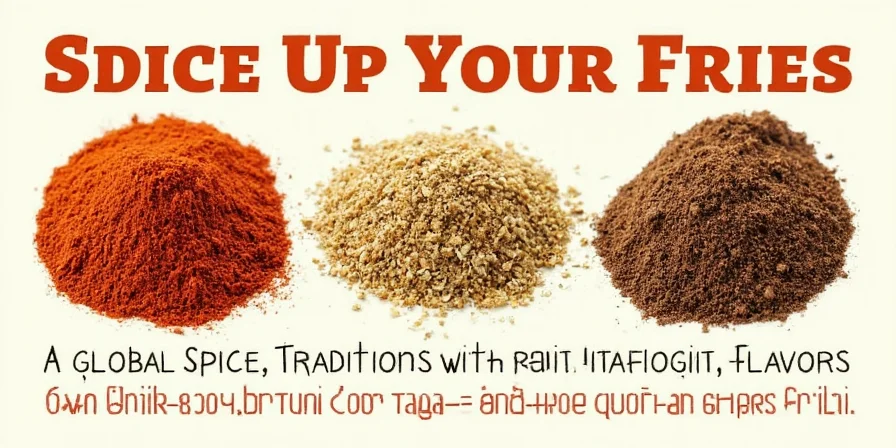
The Spices That Make Them Pop
South American cuisine thrives on its bold flavors and use of indigenous ingredients. Let’s break down the spice cabinet behind these legendary fry styles:
- Aji Amarillo – The queen of Peruvian peppers. It delivers fruity heat with floral undertones.
- Annatto (Achiote) – Provides both color and earthy warmth. Commonly used in Colombian and Ecuadorian cooking.
- Cumin – Adds smokiness and depth. Found in everything from salsas to soups.
- Oregano & Coriander – Chilean staples that add aromatic zest and mild bitterness to balance rich dishes.
- Smoked Paprika – Popular in Brazil and Argentina for adding a subtle charred note.
- Garlic – Because no fry should ever be lonely.
- Red Wine Vinegar & Lime Juice – Not technically spices, but essential for brightness and contrast.
Spice Comparison Table
| Spice | Heat Level | Flavor Profile | Best For |
|---|---|---|---|
| Aji Amarillo | Moderate-High | Fruity, citrusy, floral | Sauces, marinades, ceviche |
| Annatto | Low | Earthy, peppery, slightly sweet | Coloring oils, rice, meats |
| Cumin | None | Smoky, nutty, pungent | Grilled meats, stews, beans |
| Oregano | None | Herby, minty, warm | Tomato-based sauces, grilled veggies |
| Coriander | None | Citrusy, light, earthy | Curries, soups, pickles |
| Smoked Paprika | None | Smoky, sweet, slightly bitter | Meats, fries, deviled eggs |
Pro Tips for Perfecting Your South American-Style Fries
Ready to bring some Latin flair to your kitchen? Here are our top five pro tips for making restaurant-worthy South American-style fries at home:
- Choose the Right Potato: Opt for high-starch varieties like Russet or Yukon Gold for maximum crispiness. Waxy potatoes are better for boiling than frying.
- Double-Fry Technique: First fry at a lower temperature (around 300°F / 150°C) to cook them through, then increase the oil temperature (to 375°F / 190°C) for that golden, crispy finish.
- Season While Hot: Toss your fries immediately after frying while they're still warm so the spices stick better.
- Use Fresh Ingredients: Fresh herbs like cilantro, parsley, and lime juice make a world of difference in flavor. If possible, grind whole spices yourself for more potency.
- Play with Dips!: Don’t stop at ketchup. Try making homemade sauces like chimichurri, ají sauce, or guacamole to elevate your fry game.
Recipe Roundup: Three Must-Try South American Fry Styles
To get you started, here are three signature fry recipes inspired by South American traditions:
1. Peruvian Aji Amarillo Fries
- Ingredients: Russet potatoes, canola oil, aji amarillo paste, garlic powder, lime juice, cilantro
- Method: Cut potatoes into wedges, double-fry until crispy, then toss with a mixture of aji amarillo, garlic powder, and lime juice. Garnish with chopped cilantro.
2. Colombian Hogao & Annatto Fries
- Ingredients: Potatoes, annatto seeds infused in oil, onion, tomato, garlic, cumin, salt
- Method: Fry potatoes until golden. Sauté onions, tomatoes, and garlic into a rustic hogao sauce, then drizzle over fries. Finish with annatto oil and cumin dust.
3. Argentinian Chimichurri Crispy Fries
- Ingredients: Potatoes, olive oil, fresh parsley, oregano, garlic, red wine vinegar, chili flakes
- Method: Fry potatoes twice. Blend all chimichurri ingredients and toss fries before serving. Serve hot with extra dip on the side.
Conclusion
Whether you're experimenting with spices or diving deep into traditional techniques, South American fries offer a delicious gateway into one of the world's most vibrant culinary regions. From the tangy kick of aji amarillo to the herby freshness of chimichurri, there's a flavor waiting for every fry lover out there.
So grab your apron, sharpen those knives, and let your tastebuds travel south of the equator — one spiced fry at a time!
Until next time, happy frying!

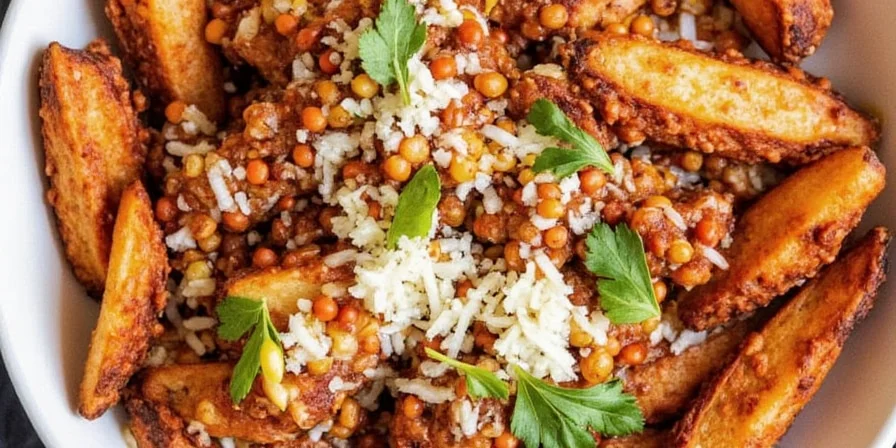









 浙公网安备
33010002000092号
浙公网安备
33010002000092号 浙B2-20120091-4
浙B2-20120091-4